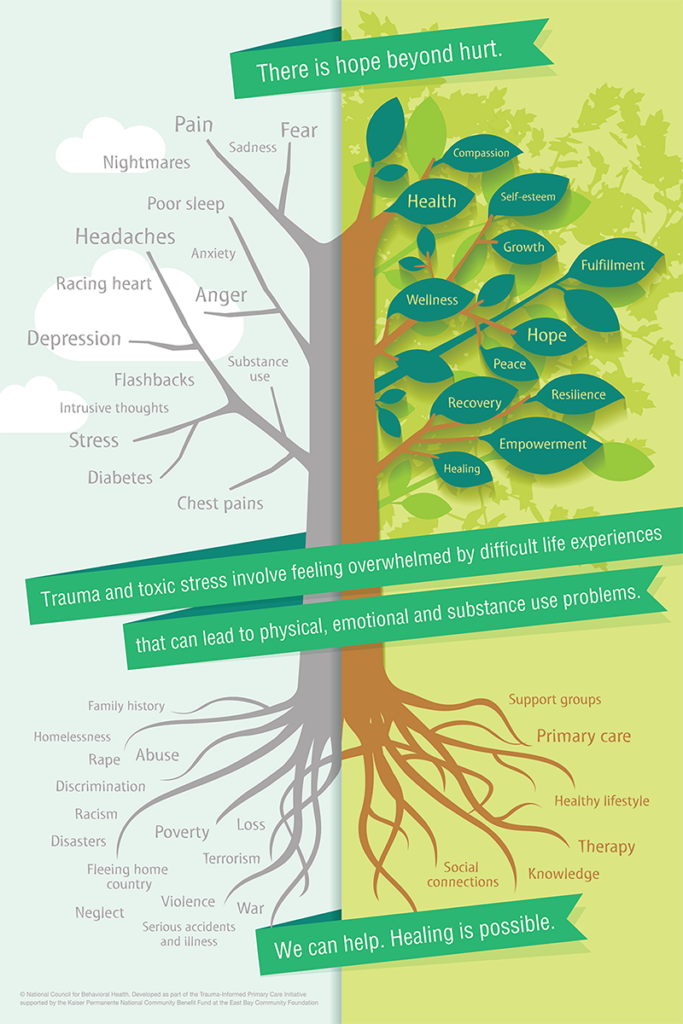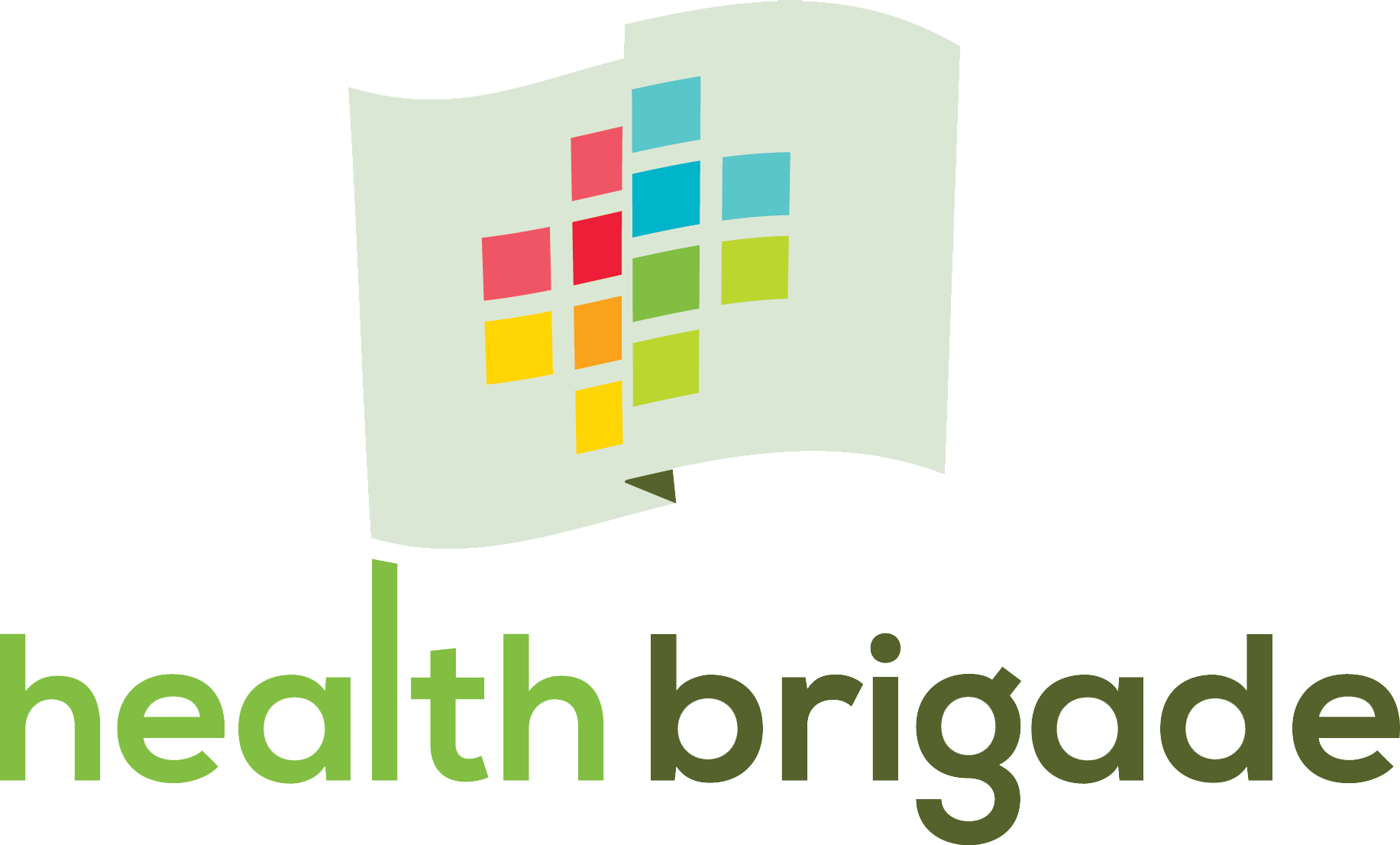Health Brigade’s Trauma-Informed Care Journey
While a client-centered approach has always been part of how Health Brigade provided care to those least served, Health Brigade began prioritizing a trauma approach to care in 2017 when it joined the Greater Richmond Trauma Informed Community Network (TICN; http://grscan.com/trauma-informed-community-network/). This is about how Health Brigade “does the work” with respect and dignity to all persons without having to know each specific history.
Trauma refers to experiences (single event and historical) that cause intense physical and psychological stress reactions. It can refer to “an event, series of events, or set of circumstances that is experienced by an individual as physically or emotionally harmful or threatening and that has lasting adverse effects on the individual’s functioning and physical, social, emotional, or spiritual well-being.”1
Substance Abuse and Mental Health Services Administration (SAMSHA) defines “a program, organization, or system that is trauma-informed as one that: 1) Realizes the widespread impact of trauma and understands potential paths for recovery; 2) Recognizes the signs and symptoms of trauma in clients, families, staff, and others involved with the system; 3) Responds by fully integrating knowledge about trauma into policies, procedures, and practices; and 4) Seeks to actively resist re-traumatization.”2
Being trauma-informed helps everyone. Trauma-informed care helps the person accessing a service (e.g., client/patient) and the person delivering it (e.g., doctor, nurse, therapist) and transforms the service culture itself.
Much of the initial work included assessing how we were doing on SAMSHA’s six key principles fundamental to a trauma-informed approach:
- safety,
- trustworthiness & transparency,
- peer support,
- collaboration & mutuality,
- empowerment, voice, and choice, and
- cultural, historical, and gender issues.
Next steps included purchasing and showing the documentary Resilience: The Biology of Stress and the Science of Hope (https://kpjrfilms.co/resilience/) to the staff with a discussion lead by Jeanine Harper from SCAN (http://grscan.com/). This documentary later became part of onboarding materials for all staff and volunteers. Around this time, a Trauma Informed Leadership Team (TILT) was created that included staff from each department (link to list of members). The TILT continues to meet monthly with a mission to support Health Brigade’s Trauma-Informed Approach to Care. In May of 2018, Health Brigade brought John Richardson-Love, LCSW, an expert in the field, from Child Savers (https://childsavers.org/), to lead a day-long training Surviving and Thriving: Trauma and Resilience for the staff.
Health Brigade created materials to provide new staff and volunteers during onboarding and orientations; recognized the importance of mindfulness for staff and volunteers and started a monthly Mindfulness Group; and highlighted the significance of self-care for staff by including it in annual evaluations. A member of the TILT submits a piece to the Trauma-Informed Care Corner in each InsideScoop publication for staff and volunteers, and TILT is currently working on the development of a Client Advisory Council. There is no end point to this journey. A trauma-informed approach to care is a framework that support’s Health Brigade’s mission to provide exceptional health services to those least served in a caring and non-judgmental environment.
References:
- http://media.samhsa.gov/traumajustice/traumadefinition/definition.aspx
- http://www.samhsa.gov/nctic/trauma-interventions

